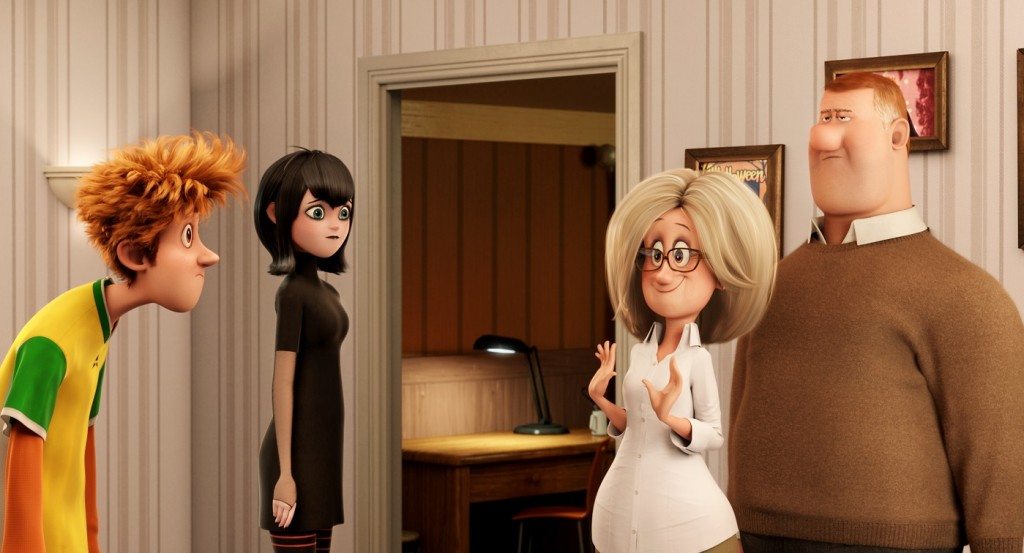I enjoy watching animated movies with the kids. Who am I kidding? I enjoy watching animated movies and take the kids just so nobody reports the creepy guy sitting by himself to theater management. What I didn’t know until recently, though, is just how much work and attention to detail goes into making an animated feature.
I had an opportunity to chat with Karl Herbst, visual effects supervisor for Hotel Transylvania 2. He explained to me the process that goes into producing an animated feature–especially when you’re making a sequel. The animators and production crew have to try to leverage new technology and make the movie visually stunning, but also maintain a consistent look and feel from the original.
Herbst told me, “In terms of the look of the picture, cloth and hair simulation has improved significantly.” He told me they ran into some issues creating animated cloth for the original Hotel Transylvania. The simulation for how cloth should move and flow is based on physics, but in an animated fantasy world physics don’t always work the way the simulator anticipates.
He talked about director Genndy Tartakovsky’s preference for the 2D smear style of motion blur. The team had to develop a new motion blur algorithm in order to deliver a sharp leading edge for the animation with a softer smear trailing behind. Herbst said the animation team are simply tourists–along for the ride, waiting to see where Genndy wants to go.
That attention to detail also plays a role when new characters are introduced–like Johnny’s parents. Animators have to develop characters that have features and attributes similar–but not identical to–the original character. There’s also an element of trying to incorporate both the intended personality of the character and the unique personality the voice actors–in this case husband and wife team Nick Offerman and Megan Mullally–bring to the table.
Check out the video to learn more about how Johnny’s parents were created for the movie. If you haven’t yet seen Hotel Transylvania 2, you should check it out.
- Building Security for a World That’s Already Changed - December 19, 2025
- Cybersecurity’s Quiet Revolution: What We’re Missing While Chasing the Hype - December 18, 2025
- Semperis Confronts the Identity Chaos Exposed by AI Search - December 11, 2025



